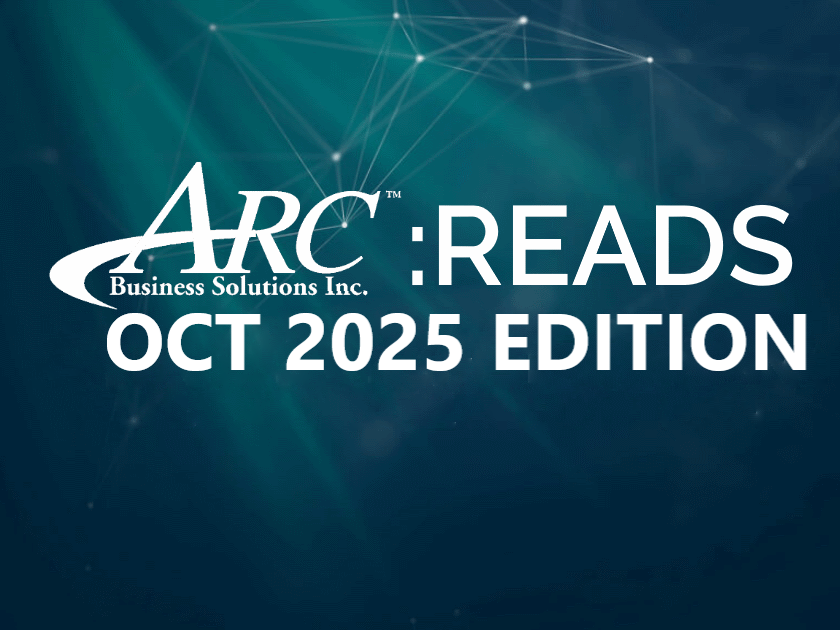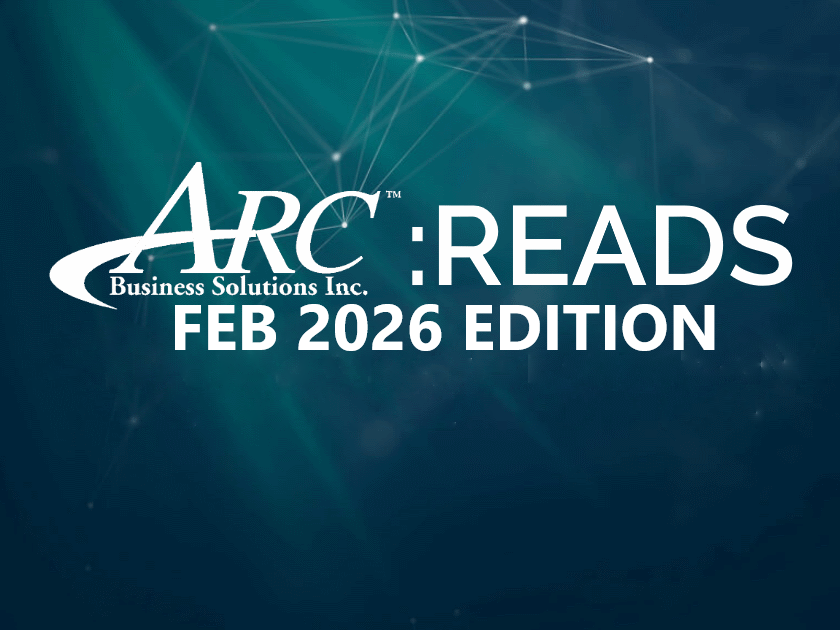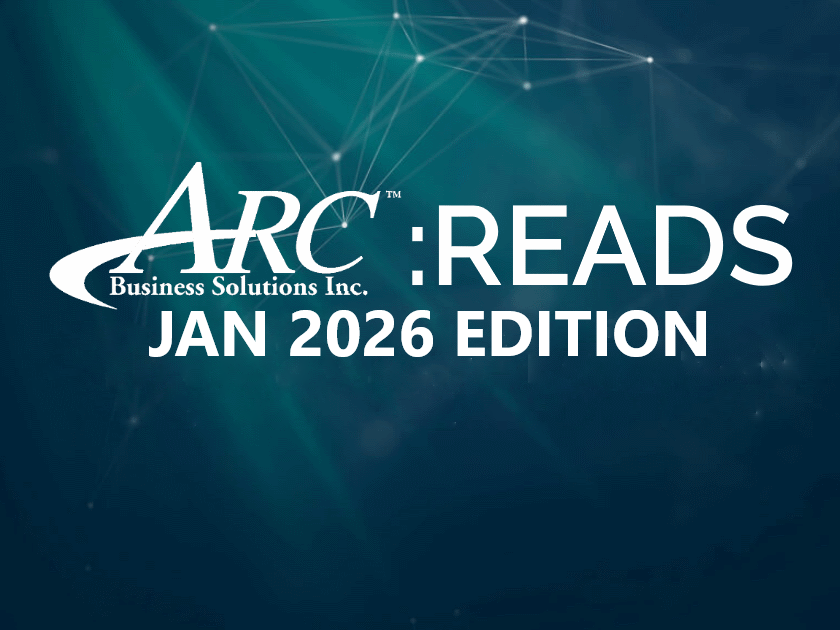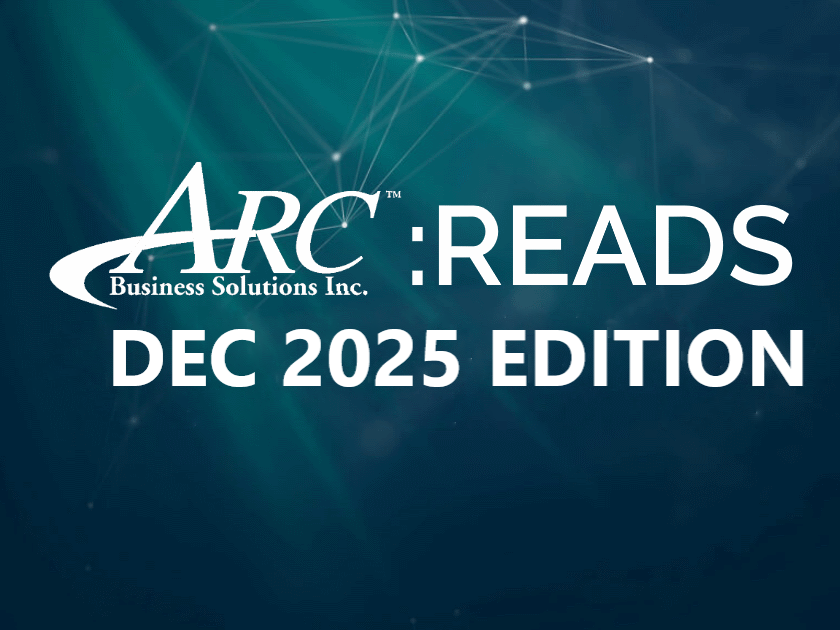
This Month: Why The Zero Trust Model Will Become The New Security Norm, Scientists Develop The World's First Rechargeable Hydride Ion Battery, The Curious Comfort of Saying No, Research: How Old Companies Can Ignite New Growth & More
October is here, bringing fresh perspectives and continued momentum across the tech landscape. In this edition of ARC Reads we continue to share the latest tech and business articles that have piqued our interest.
Why the Zero Trust Model Will Become the New Security Norm -It seems that nearly every week there is a report of yet another company suffering a massive security breach. While the nature of these breaches varies widely, they all point to one underlying truth: The conventional approach to IT security is notworking. That being the case, it seems inevitable that organizations large and small will have no trust but to adopt the zero trust model for security.
Scientists Develop the World’s First Rechargeable Hydride Ion Battery -Hydride ions (H⁻) have drawn interest as potential charge carriers for future electrochemical devices because of their extremely low mass and high redox potential. Yet, progress has been limited since no electrolyte has been able to provide the combination of rapid ion movement, thermal stability, and compatibility with electrodes that such systems require. More here.
The Curious Comfort of Saying “No”-In many organizations, especially complex or global firms, saying “no” is structurally safer than saying “yes”. If you approve a risky initiative and it fails, you might be blamed. But if you delay, defer or block it? There’s no immediate downside and you don’t carry the cost of inaction. Someone else – typically the business itself – is left holding the empty bag of missed opportunity.
Research: How Old Companies Can Ignite New Growth -As companies mature, their growth tends to slow. Research has shown that stagnation is anormal part of the corporate life cycle—but it is not destiny. Some firms defy the trend, achieving and sustaining what we call breakout growth: they increase their sales at least twice as fast as their peers for five years, and then sustain above-industry growth for five subsequent years. In a global study of848 companies that experienced stagnation—defined as five years of below-industry revenue growth—we identified 99 companies that beat the odds over the subsequent 10 years. Article.
The Surprising Success of Hands-On Leaders -Leadership theory suggests CEOs should focus on high-level issues such as strategy and resource allocation. These authors challenge this conventional wisdom by spotlighting CEOs who dive deep into day-to-day execution rather than hovering at the strategic level. By exploring best practices at Amazon, Danaher, RELX, and Toyota, they argue that top-performing companies thrive because of leaders who actively shape how work gets done. These CEOs—Jeff Bezos, Larry Culp, Erik Engstrom, and Eiji Toyoda—have rejected the hands-off model in favor of modeling behaviors and teaching frontline teams. Their approach isn’t micromanagement; it’s a disciplined, system-building style that fosters autonomy, clarity, and continuous improvement. The five principles.

This Month: Why The Zero Trust Model Will Become The New Security Norm, Scientists Develop The World's First Rechargeable Hydride Ion Battery, The Curious Comfort of Saying No, Research: How Old Companies Can Ignite New Growth & More
October is here, bringing fresh perspectives and continued momentum across the tech landscape. In this edition of ARC Reads we continue to share the latest tech and business articles that have piqued our interest.
Why the Zero Trust Model Will Become the New Security Norm -It seems that nearly every week there is a report of yet another company suffering a massive security breach. While the nature of these breaches varies widely, they all point to one underlying truth: The conventional approach to IT security is notworking. That being the case, it seems inevitable that organizations large and small will have no trust but to adopt the zero trust model for security.
Scientists Develop the World’s First Rechargeable Hydride Ion Battery -Hydride ions (H⁻) have drawn interest as potential charge carriers for future electrochemical devices because of their extremely low mass and high redox potential. Yet, progress has been limited since no electrolyte has been able to provide the combination of rapid ion movement, thermal stability, and compatibility with electrodes that such systems require. More here.
The Curious Comfort of Saying “No”-In many organizations, especially complex or global firms, saying “no” is structurally safer than saying “yes”. If you approve a risky initiative and it fails, you might be blamed. But if you delay, defer or block it? There’s no immediate downside and you don’t carry the cost of inaction. Someone else – typically the business itself – is left holding the empty bag of missed opportunity.
Research: How Old Companies Can Ignite New Growth -As companies mature, their growth tends to slow. Research has shown that stagnation is anormal part of the corporate life cycle—but it is not destiny. Some firms defy the trend, achieving and sustaining what we call breakout growth: they increase their sales at least twice as fast as their peers for five years, and then sustain above-industry growth for five subsequent years. In a global study of848 companies that experienced stagnation—defined as five years of below-industry revenue growth—we identified 99 companies that beat the odds over the subsequent 10 years. Article.
The Surprising Success of Hands-On Leaders -Leadership theory suggests CEOs should focus on high-level issues such as strategy and resource allocation. These authors challenge this conventional wisdom by spotlighting CEOs who dive deep into day-to-day execution rather than hovering at the strategic level. By exploring best practices at Amazon, Danaher, RELX, and Toyota, they argue that top-performing companies thrive because of leaders who actively shape how work gets done. These CEOs—Jeff Bezos, Larry Culp, Erik Engstrom, and Eiji Toyoda—have rejected the hands-off model in favor of modeling behaviors and teaching frontline teams. Their approach isn’t micromanagement; it’s a disciplined, system-building style that fosters autonomy, clarity, and continuous improvement. The five principles.
.png)

This Month: Utilities Under Pressure: 6 Power Sector Trends to Watch, Emerging Project & Change Management Trends in 2026, How Innovation Happens, Why Training Employees Pays off Twice & More
.png)

This Month: 60 Mindful New Year's Resolution Suggestions to Start 2026, 5 Ways Organizations Can Pivot With Purpose, All Gas No Brakes: Tech Predications in 2026 & More
.png)

This Month: Customers Expect Empathy, Here is How to Deliver It, Magnet Powered Micro Robots in Your Bloodstream, Become an Octopus Organization, and Quantum Thinking Can Help Solve Complex Strategy Challenges & More
.png)